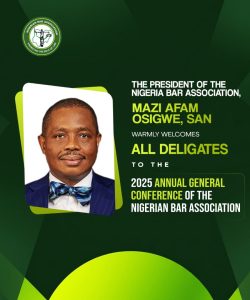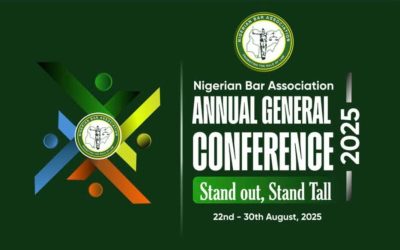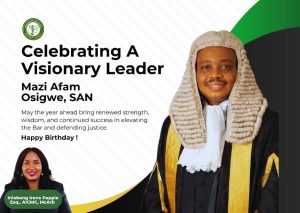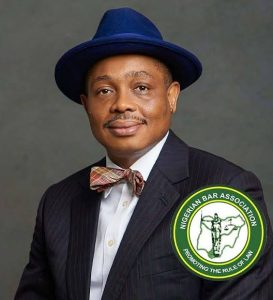The 2025 Annual General Conference of the Nigerian Bar Association (NBA), holding in Enugu, will on Tuesday, August 26, 2025, at 3:00PM, feature one of its most anticipated breakout sessions titled “Rethinking Political Questions”.
The session will bring together a distinguished panel of jurists and legal icons whose careers reflect depth, excellence, and commitment to advancing jurisprudence in Nigeria.
Leading the lineup is Jacob Johnson Usman, SAN, Principal Partner at J.J. Usman & Co., who has built a reputation as a fearless advocate in constitutional, electoral, and commercial litigation, and who was elevated to the rank of Senior Advocate of Nigeria in 2021.
Joining him is Hon. Justice Onyinye Anumonye, FCIArb, FICMC, of the High Court of Anambra State, a versatile judge with a strong foundation in election petition practice and arbitration, noted for landmark rulings since his elevation to the bench in 2019.
Also on the panel is Shaba Ibrahim, lawyer, politician, farmer, and public affairs analyst, whose career spans legal practice, political leadership, and legislative service, including a tenure at the House of Representatives (2019–2023).

Usman O. Sule, SAN, FICMC, a highly respected litigator and arbitrator with decades of experience in commercial, electoral, and civil matters, will further enrich the discussion with his expertise as a Senior Advocate of Nigeria and Fellow of the Institute of Chartered Mediators and Conciliators.
The session will be moderated by Prof. R.A.C.E. Achara, Ph.D., an erudite scholar, seasoned litigator, and respected leader of the Bar, who brings both historical perspective and deep intellectual grounding to the conversation.
Prof. Achara’s long-standing engagement with constitutional theory and his leadership within the NBA Enugu Branch uniquely position him to guide what promises to be a thought-provoking dialogue.
The topic, “Rethinking Political Questions”, will critically examine the doctrine of non-justiciability in the internal affairs of political parties and interrogate the evolving stance of Nigerian courts. While traditionally reserved as non-interference zones, courts have increasingly tilted toward limited oversight, an approach aimed at safeguarding the rule of law and deepening democratic practice.
This session is expected to ignite robust debate on the fine balance between judicial restraint and judicial responsibility in political disputes and its implications for Nigeria’s democracy. With such a powerful panel of thought leaders, lawyers and delegates, the NBA-AGC 2025 can anticipate a conversation that is as intellectually rigorous as it is practically consequential.






